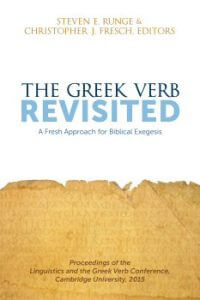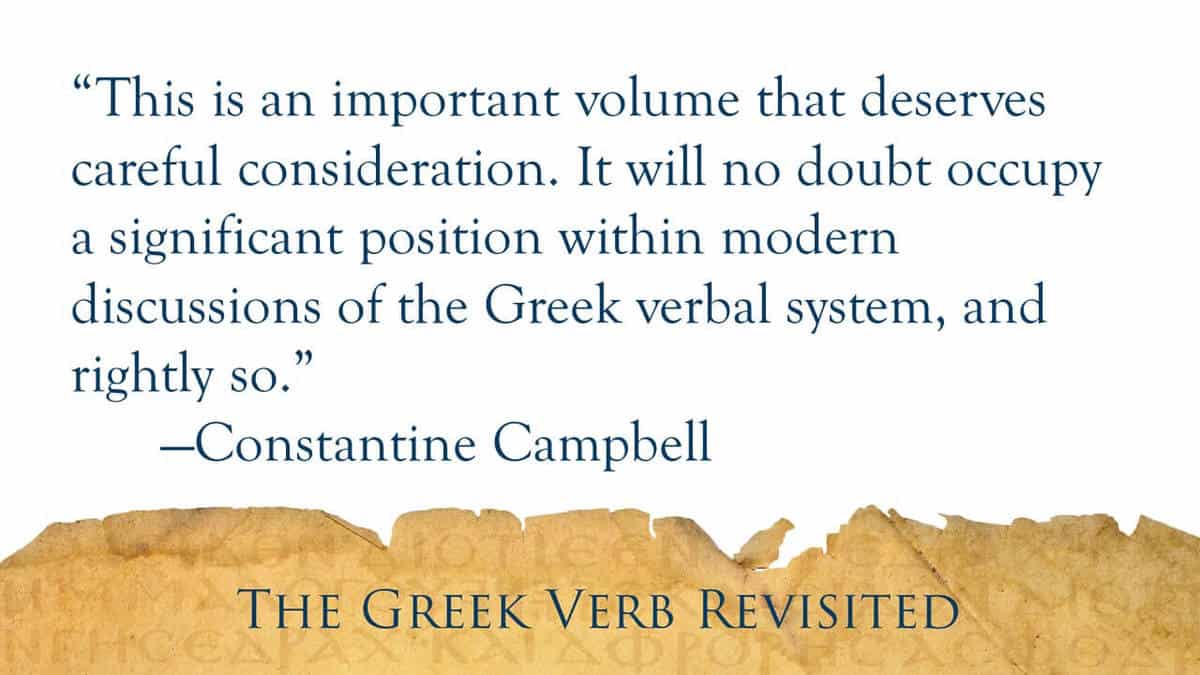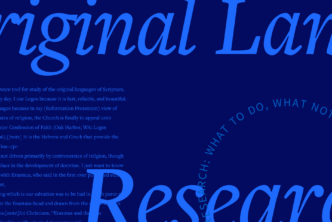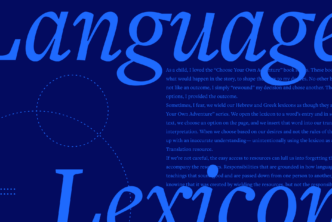 For the past 25 years, debate regarding the nature of tense and aspect in the Koine Greek verb has held New Testament studies at an impasse. Originally presented during a conference on the Greek verb supported by and held at Tyndale House and sponsored by the Faculty of Divinity of Cambridge University, the papers included in The Greek Verb Revisited represent the culmination of scholarly collaboration. The outcome is a practical and accessible overview of the Greek verb that moves beyond the current impasse by taking into account the latest scholarship from the fields of linguistics, Classics, and New Testament studies.
For the past 25 years, debate regarding the nature of tense and aspect in the Koine Greek verb has held New Testament studies at an impasse. Originally presented during a conference on the Greek verb supported by and held at Tyndale House and sponsored by the Faculty of Divinity of Cambridge University, the papers included in The Greek Verb Revisited represent the culmination of scholarly collaboration. The outcome is a practical and accessible overview of the Greek verb that moves beyond the current impasse by taking into account the latest scholarship from the fields of linguistics, Classics, and New Testament studies.
Scholars have recognized the importance of this collaborative effort. Constantine Campbell has said, “This is an important volume that deserves careful consideration. It will no doubt occupy a significant position within modern discussions of the Greek verbal system, and rightly so.” The Greek Verb Revisited not only offers a rare glimpse into the background of the debate over the Greek verb, but also explains the significance of this discussion and provides a linguistically-sound way forward.
Here’s an excerpt from the foreword by Andreas Köstenberger:
This is the critical juncture of the debate as it presents itself at the moment. What is more, this new paradigm needs more than one or two doctoral dissertations arguing it. It needs a broader consensus undergirding it by a critical mass of scholars who use a collaborative approach that focuses, not on personalities, but on issues, and that keeps trying to find solutions until the new paradigm has coalesced and is ready to be tested and validated by the data as they present themselves in the available Koine Greek literature, including the New Testament.
The Greek Verb Revisited represents the product of years of such collaborative efforts to move past the stalemate of previous debates and to make real progress in understanding how the Greek verb works. I will not go into detail here, because I want the contributions of the authors of the various essays included in this volume to speak for themselves.
What I will do, however, is commend this volume to you as a new way forward beyond the impasse in New Testament Greek studies, particularly with regard to verbal aspect. If you’re like me, and you’ve tuned out of the debate surrounding the use of the Greek verb for a while, or even if you’ve never been a part of the debate at all, now is the time to tune back in and to listen and learn from this team of scholars who, I’m convinced, have managed to arrive at a deeper level of understanding of how the Greek verb was used by first-century New Testament Greek writers, in a balanced and cogent way.
* * *
Readers of The Greek Verb Revisited will find an accessible introduction to the foundational issues, and more importantly, they will discover a way forward through the debate over the Greek verb. This important volume is now available in print and digital formats.





